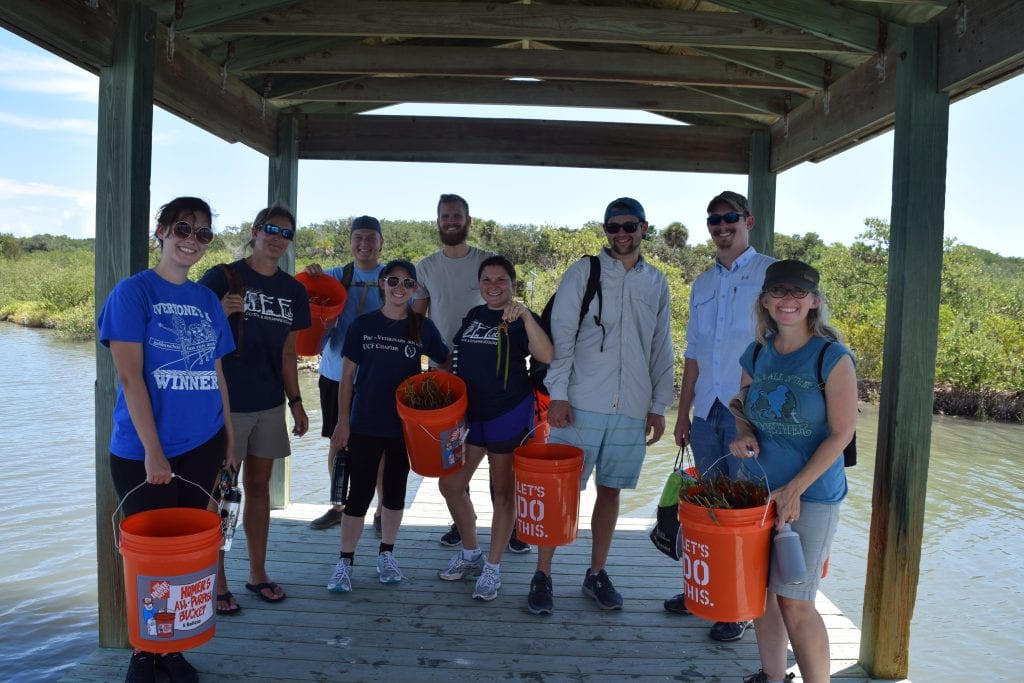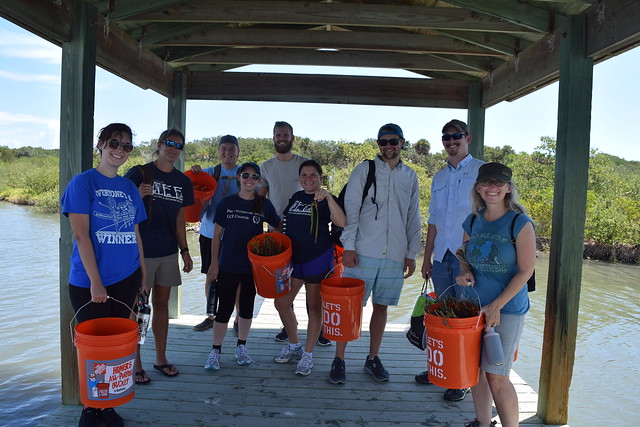Living Shoreline Workshop Makes Waves in K-12 Classrooms

12 educators, representing eight schools throughout three counties, participated in the UCF Living Shoreline Educator Workshop on Sunday, August 28, 2016.
Pegasus Professor in the UCF Biology Department Linda Walters, Ph.D., UCF Biology Post-Doctoral Researcher and Instructor Melinda Donnelly, Ph.D., and Paul Sacks, Ph.D., a science educator at Winter Springs High School, led the group of K-12 educators through an informational and hands-on experience of UCF’s restoration efforts in the Indian River Lagoon.
“This was our best ever Mangrove & Living Shorelines Workshop for K-12 educators,” said Dr. Walters. “Our previous 5 workshops were also very good, so this is a strong statement on purpose!”
Educators participating in the workshop establish mangrove nurseries for UCF at their schools each fall. During the workshop the educators tour the Indian River Lagoon on boats to collect the mangrove propagules (“seeds”). UCF provides the additional materials needed to sustain these mangrove nurseries in their classrooms.
The juvenile mangrove plants sustained in the educators’ classrooms are given back to UCF in May which are then used in living shoreline stabilization. The propagules collected within Canaveral National Seashore specifically are used in park stabilization projects along highly eroded shorelines, especially historic shell midden sites.
In addition to their collection of mangrove propagules, the participants enjoyed a boat trip tour spotting dolphins and manatees throughout their trip. The educators’ enthusiasm rose as they traveled past five-year-old living shoreline sites where previous student-nursery plants are now over eight feet tall.
UCF Early Childhood Associate Lecturer Deidre Englehart, Ph.D., piloted the workshop’s oyster yoga routine, showing the educators how to combine large muscle movement with STEM.
Assistant Professor of Geographic Information Systems (GIS) in the Department of Sociology, Timothy Hawthorne, Ph.D., actively showed educators how to bring GIS and “sense of place” science to their classes. The goal of this demonstration is to allow students in the participating classrooms to digitally draw where they believe their mangrove nurseries are helping the planet.
The students who have the opportunity to work on these mangrove nurseries in their classrooms maintain hands-on engagement and a way to bond with the park and the Indian River Lagoon, even from remote areas like Sanford and Orlando.
This year’s participating educators reported that the project would directly impact 2,220 students and indirectly impact many more at their respective schools.
“We don’t have any absolute numbers, but I would expect that educator-run nurseries have contributed over 10,000 plants to Indian River Lagoon restoration thus far,” said Dr. Walters.

